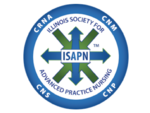ON DEMAND 2024 APRN Midwest Conference - Using an ECHO Model: Addressing Bias and Stigma to Save Lives in the Opioid Crisis
CE Information
1.0 contact hourCompletion Time
1 hourAvailable Until
December 31, 2025Navigate
Overview
Specialties
Adult and Psychiatric / Mental HealthSubspecialties
OtherClinical Topics
Mental Health and TreatmentThis presentation will outline how the ECHO model uses cohorts of healthcare professionals across the state of Illinois to foster a safe space for providers to recognize the clinical manifestations of bias while improving treatment to persons with OUD. The introduction to OUD as a chronic condition and evidence-based treatment modalities will be discussed. Additionally, a model case study will be provided to demonstrate how providers receive initial private feedback from subject matter experts addressing topics like stigmatizing language and documentation recommendations. Finally, a case study will be presented to the group where suggestions are made with a harm reduction framework in mind.
Learning Objectives
-
Understanding the Impact of Bias and Stigma in Opioid Use Disorder (OUD) Treatment: Equip healthcare providers with knowledge on how systemic biases and stigma affect patient access to care and treatment outcomes in opioid use disorder, and the importance of addressing these barriers to enhance healthcare delivery.
-
Effective Use of the ECHO Model to Enhance OUD Care: Teach healthcare providers how to utilize the Project ECHO model to expand their expertise in medication-based treatment for OUD across different regions, emphasizing the model's role in fostering mentorship and collaborative learning among providers.
-
Implementing Harm Reduction Strategies in OUD Management: Instruct healthcare providers on multiple harm reduction methods and practices, including the safe and effective use of medications for opioid use disorder and non-stigmatizing communication techniques in patient interactions, to improve overall treatment efficacy and patient safety.
Learning Outcome Evaluation: Participants will state one thing they learned from the program and how they will implement it into their practice.
Speakers

Amanda LaMonica-Weier, DNP, MAT, APRN, FNP-BC, CNL is a Family Nurse Practitioner who practices in a primary care setting that specializes in addiction medicine and in shelter-based care. She serves as a Senior ECHO Fellow focusing on opioid use disorder. Dr. LaMonica-Weier is an Assistant Professor at Rush University College of Nursing, with a focus on providing training in the treatment of opioid use disorder and trauma-informed care. She is also working on completing her postdoctoral training as a PMHNP.

Dr. Keisha Nicole House is a Full practice Authority, Family Nurse Practitioner. She currently serves as Rush University Medical Center Assistant Director for the Substance abuse Disorder Center of Excellence. As well as the Program Director of the Rush Opioid Use Disorder Treatment Fellowship ECHO Program. Since becoming a Family Nurse Practitioner in 2016, she has worked primarily at FQHCs located in the heart of Chicago’s Southeast and Westside neighborhoods, where she primarily served underprivileged populations. Keisha brings a breadth of experience as a primary care provider and also as a Registered Nurse working more than 14 years caring for patients of all ages in the areas of Medical-Surgical nursing, Labor and Delivery, managed care, and nursing administration at several Chicagoland area hospitals. Keisha also teaches and mentors Family Nurse Practitioner students at the University of Illinois at Chicago.
CE Information
This activity offers 1.0 contact hour to attendees.
Accredited by Illinois Nurses Foundation is approved as a provider of nursing continuing professional development by the Montana Nurses Association, an accredited approver with distinction by the American Nurses Credentialing Center’s Commission on Accreditation.
The Illinois Nurses Foundation and the Illinois Society for Advanced Practice Nursing jointly provided this program.
Disclosures
To earn contact hours, learners must watch the entire webinar and submit an evaluation to receive the digital certificate after the session.
There are no relevant financial relationships with ineligible companies for those involved with the ability to control the content of this activity
Activity Content
Registration to this activity includes access to the following supporting materials.
- Using an ECHO Model: Addressing Bias and Stigma to Save Lives in the Opioid Crisis (Size: 861 KB)
Duration: about 1 hour | Quality: HD
5 questions
Access your certificate

